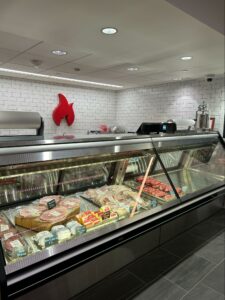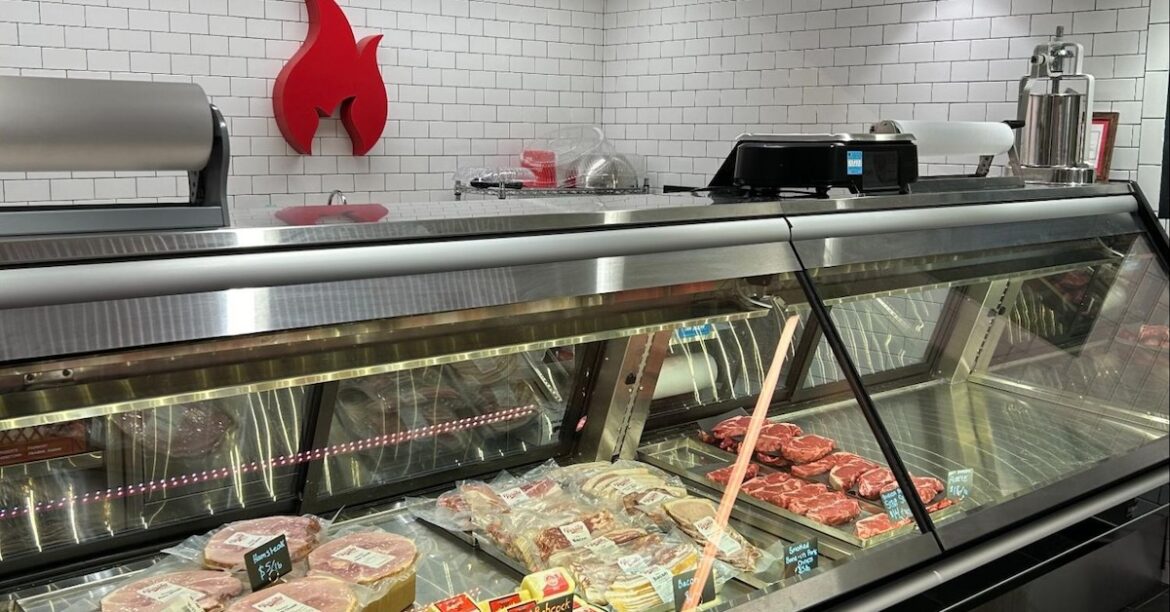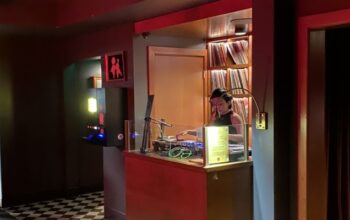Despite the meat industry being one of the biggest industries in Wisconsin, the community of people who work in the meat business is relatively small. Businesses are located far and wide, and industry members don't get together so often.
However, in Madison, these people can come together in an educational environment to learn more about different developments in the field to bring home to their businesses and form connections that could benefit them in the future.
UW–Madison is home to a two-year training program, known as the Master Meat Crafter Program, that offers members of the meat industry new skills and knowledge to take their careers to the next level. Created in 2010 by Jeff Sindelar, Ph.D., a professor and extension meat specialist in Animal & Dairy Sciences, it is a one-of-a-kind program that brings people from across the country and abroad to Madison to earn the “Master Meat Crafter” distinction upon graduation.
Beginning in January of every other year, the group, which generally consists of 30 students, will flock to Madison for six three-day intensive workshops spread out over two years.
It is not a full-time commitment like most UW programs are, as coordinators are respectful of students having to continue their day jobs while balancing their studies.

Previous education is not needed either. Industry experience is one of the main determiners of admittance to this competitive program. Generally, five years of experience is required, but sometimes exceptions are made when applicants have a strong background knowledge of meat, like growing up in a family business.
While the program is by no means cheap at $11,000, many employers from large companies have found the qualifications and training their employees receive are beneficial and have been sponsoring their employees. With the high level of expertise and world-class facilities, it is a no-brainer for many members of the meat industry to apply to this unique program.
Students come to the program with a range of experiences. Some are owners of meat processing plants or butcher shops. Others are employees who are often recommended to the program by colleagues. Johnsonville, the sausage company based in Sheboygan Falls, and PS Seasoning, located in Iron Ridge, regularly have employees in the program.
But people come from even farther away to learn under Sindelar and others in their top-of-the-range facilities that opened during the COVID pandemic in October 2020. The current class includes students from California, Washington and even Alberta, Canada.
Workshop days can consist of lectures from various experts in the field, demonstrations, hands-on work in the factory, laboratory work and, of course, some delicious meat-filled meals from inside the plant or from local restaurants. As in any other academic program, homework is doled out with deadlines.
Lecture halls are decked out with high-technology features, including a temperature-controlled meat cutting room that is shielded from the main seating area and equipped with a microphone and speakers so instructors can communicate with students on the other side of the glass.
Students can also communicate with lecturers thanks to microphones that are located at each person’s seat.
“They’ve got cameras that can zoom in on a certain blood vessel,” outreach program manager Colleen Crummy said.
Crummy also said that Dr. Sindelar played a crucial role in the creation of the Meat Science & Animal Biologics Discovery Building. “We have things in this building that no one else in the entire world has, not just the U.S. but the entire world.”
Sindelar also provides consulting services for those in the industry in Wisconsin and beyond.
“Companies will come up and say, ‘Hey, we were thinking about doing this and this and this,’ and he can help provide freezer-specific specifications or help design meat-cutting facilities,” Crummy said. Sindelar is also the one to call if you are a warehouse owner having freezer temperature trouble, and he will help provide the information and what needs to be done to keep everything safe, she added.
The second workshop of the program, the Fresh Meats School, was in session from April 30 to May 2. This workshop was designed to enhance students’ knowledge on fresh meat fabrication and processing principles. Guest lecturers showcased their machinery and techniques to the students, who were able to test out some of the best meat processing machinery available.
The workshops also give the lecturers opportunities to promote their products to make potential sales in the future to the businesses the students are coming from. “It gives them a chance to get their products in front of people that are decision makers. They get to meet with the people that are actually using the equipment on the frontline,” Crummy said.
The demonstrations included one featuring a beef patty-making machine produced by Plymouth-based Tomahawk Manufacturing, fresh sausage making with a system developed by Illinois-based Handtmann that uses a gel casing rather than skin, chorizo making and packaging with Sindelar, injection of pork loins with moisture enhancers and marination of turkey tenders. The group of 30 was split into four and spent half an hour at each station, where they got to watch, then try out the various product manufacturing tools themselves.

All the products manufactured during these demonstrations were packaged and sold in Varsity Meats, a student-driven meat shop located in the UW Meat Science & Animal Biologics Discovery Building at 1933 Observatory Dr. It is open to the public and sells various cold and cooked cuts, and customers can even get specific cuts upon request if they are not available in-house.
With the majority of students in the master meat craft program coming from outside Dane County, the program also provides them with accommodation and meals, all organized by Crummy. Students stay at the DoubleTree by Hilton Hotel in downtown Madison and get shuttled to and from the UW Meat Science & Animal Biologics Discovery Building every morning and evening. They also get to sample local restaurants at night while being given a guest lecture.
It’s a great way to bond with fellow students and share stories from the industry. Crummy said that by starting the day all together on the bus, students build a great sense of camaraderie that continues throughout the day in class and to the group meals they share.






